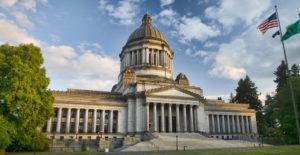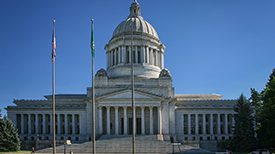LEV Legislative Roundup for Week 5: Burning the midnight oil
By Jacob Vela, League of Education Voters Director of Policy and Research

This week the Legislature pivoted to full-time floor action, meaning that the focus will be on caucusing, debating, and passing their members’ priority bills. These days are long, and both the House of Representatives and the Senate worked this past weekend, with the House hearing bills into the early morning hours on Sunday, to get their work done before the February 15th House of Origin cutoff. It is funny how many emails legislators receive from constituents this time of session inquiring about if they are “really still working” when they stumble across TVW in the middle of the night and see their elected official speaking on a bill. The answer is “YES” – the legislators and staff put in long hours discussing possible amendments, strategizing, and finally debating bills on their respective chamber floors. Read More

 We knew the 2021 Legislative Session was going to be different than past years and present some not-so-happy surprises along the way. The remote nature of the session created some significant challenges in shepherding legislation through the process and understanding why some legislation hit unexpected roadblocks along the way. In the face of these difficulties, some significant pieces of legislation have made their way out of the legislature and onto the Governor’s desk.
We knew the 2021 Legislative Session was going to be different than past years and present some not-so-happy surprises along the way. The remote nature of the session created some significant challenges in shepherding legislation through the process and understanding why some legislation hit unexpected roadblocks along the way. In the face of these difficulties, some significant pieces of legislation have made their way out of the legislature and onto the Governor’s desk.